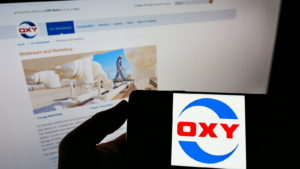
Amidst the uncertainty, savvy investors recognize that market downturns potentially pave the way for future prosperity. However, the quest for long-term stocks to buy soon remains fraught with challenges. The fleeting allure of meme stocks, the snares of value traps and the troubling macroeconomic situation remain formidable tasks for the average investor. Yet, patience and thorough research can unearth hidden treasures in the current economic terrain. With that said, here are three long-term stocks to buy soon that not only diversify, but strengthen one’s financial portfolio, preparing it for a prosperous future ahead.
Medtronic (MDT)

Medtronic (NYSE:MDT) stands out as one of the most compelling long-term stocks to buy soon, ticking boxes for a diverse array of investors. Whether you’re an AI enthusiast, bullish on healthcare, or an income investor, Medtronic’s attributes continue to resonate across the board.
In the realm of healthcare AI, Medtronic is positioned as a front-runner. The company’s partnership with AI giant Nvidia (NASDAQ:NVDA) positions it at the top of the heap of AI-integrated medical hardware providers. Nvidia healthcare vice president, Kim Powell, is optimistic about how this collaboration could boost clinical decision-making and patient outcomes.
Looking at the broader medical device market, Medtronic is set to capitalize on a sector poised for massive growth. The industry is expected to reach $795 billion by 2030, growing at a steady 5.2% CAGR since 2015. Medtronic’s substantial market share positions it favorably within this expanding market. Additionally, Medtronic’s stellar profitability, marked by a 15% free-cash-flow margin, makes it an undervalued pick trading at just 2.9 times forward sales. Also, it is complemented by an attractive total yield of 3.90%, which is 111% higher than the sector median.
Occidental Petroleum (OXY)

Despite the controversial nature of its core business, Occidental Petroleum (NYSE:OXY) remains a top pick in Warren Buffett’s portfolio. Operating in the U.S. and the Middle East, Occidental’s focus on upstream activities raises concerns about its long-term viability amidst the growing push for renewable energy. Inventory build-ups and broader integration hurdles are two challenges facing EV commercialization, highlighting the need for diverse energy sources. The rising population further underscores this necessity. Hence, despite the slowdown in its top-line expansion, Buffet’s increased stake in OXY is now over 25%, a testament to its long-term value.
Moreover, OXY is adding another to its growth story with its direct air capture initiatives aimed at reducing carbon emissions. A major collaboration with Amazon (NASDAQ:AMZN) involves a decade-long deal to use its facilities for carbon offsetting. For those looking to strike a blend of sustainability, value and practical energy solutions, OXY stock offers an intriguing proposition.
Pfizer (PFE)

Pfizer (NYSE:PFE) is poised for a resurgence after effectively reassessing its financial expectations. The pharmaceutical giant recently adjusted its forecast to account for revenues from its once blockbuster products, Paxlovid and Comirnaty. This shift enables investors to focus on the future and Pfizer’s broader business portfolio beyond its pandemic-era offerings.
Despite the downturn in Covid-19-related sales, Pfizer’s performance in other areas has been spectacular. Its third quarter results have shown a 10% year-over-year growth in non-Covid-19 products. However, this achievement seems overshadowed by the stock’s double-digit drop year-to-date. This decline is mainly attributable to the market’s preoccupation with the dwindling coronavirus revenue stream. Furthermore, Pfizer now offers an attractive dividend yield of more than 5.50%, backed by a history of 12 consecutive years of dividend growth, leaving room for future increases. Looking ahead, Pfizer’s management anticipates 6% to 8% operational revenue growth to close out the year, excluding coronavirus products. Analysts are even forecasting double-digit earnings growth for 2024 and 2025.
On the date of publication, Muslim Farooque did not have (either directly or indirectly) any positions in the securities mentioned in this article. The opinions expressed in this article are those of the writer, subject to the InvestorPlace.com Publishing Guidelines






